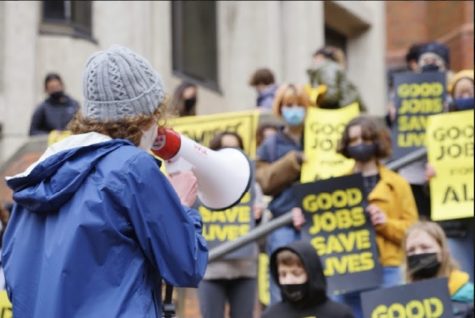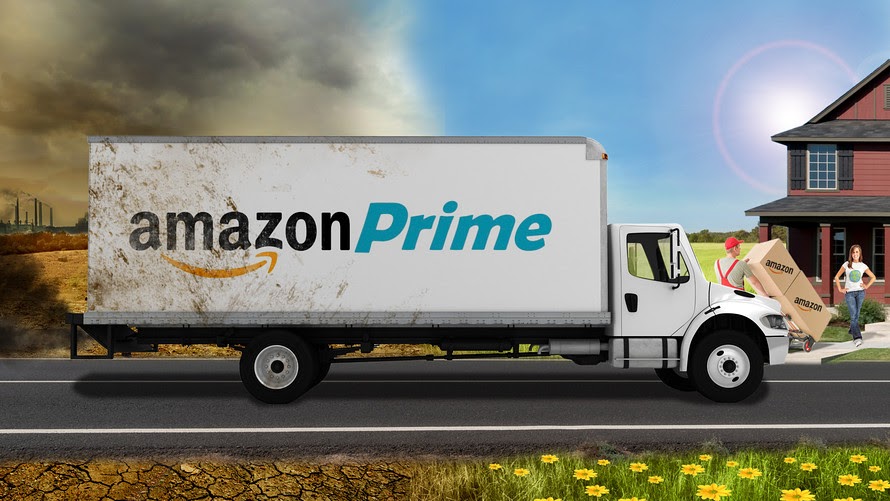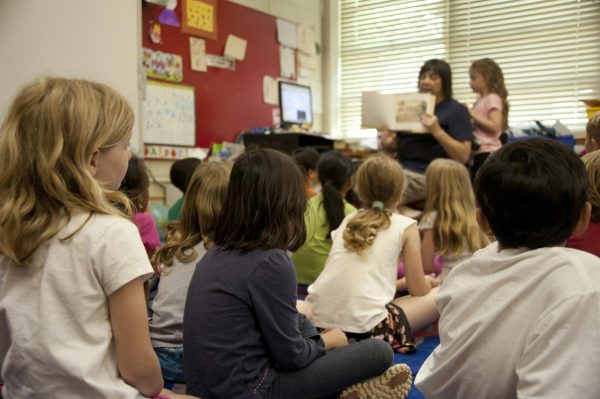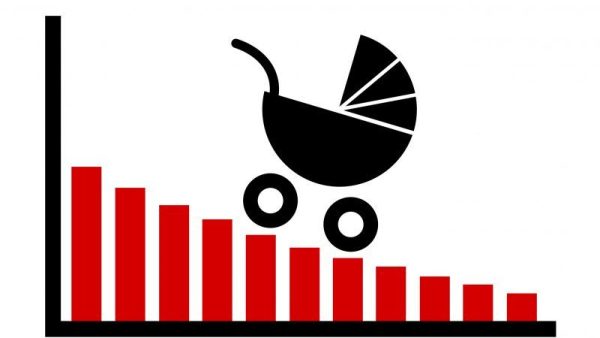Beyond performative purchases: It’s time to take collective action to protect the environment
A sea of green and brown hues. This is what is generated by a search for “eco-friendly products” on Amazon’s website. Inventions such as bamboo toothbrushes and biodegradable doggy bags litter the page, many with the promise available to Amazon-Prime users: “Get it as soon as tomorrow.” As American consumers continue to feed their growing sense of environmental guilt through green-shopping, large companies are taking advantage of the opportunity to make a quick buck.

Through misguided attempts at becoming more environmentally proactive, consumers are inadvertently funding what they initially sought to prevent. For instance, before a seemingly eco-friendly purchase on Amazon arrives on your doorstep, it must travel through a delivery system that emitted over 19 million metric tons of carbon in 2017 according to an estimate by climate activist organization 350 Seattle – just under five coal power plants worth of materials. Though individual action to protect the environment through green-shopping is not as futile as many claim, it is flawed. If the extent of our activism is throwing money at trendy products that drive corporations such as Amazon to dangerous environmental extremes in order to meet the demand, the movement to protect the Earth becomes an accessory rather than the necessity that science urges and humanity requires.
The inaccessibility of pricey eco-friendly products also alienates many from environmental activism, making it a commodity and status symbol that is out of reach for the many low-income people who are disproportionately affected by issues such as air pollution. Writer Ann-Marie Alcantara warns, “Environmentalism is once again in danger of becoming irrelevant if membership to its ranks remains — intentionally or otherwise — exclusive.”
 At a polarized period in history where unification and collective action are key to promoting progress, the modern narrative around environmental action inspires a sense of competition that our planet cannot continue to endure. The pressure to demonstrate your commitment to protecting the environment by purchasing products with a large delivery carbon footprint derails and distracts from long-term plans for change. Seemingly, if you can’t afford organic fruit from the farmer’s market, you’re the real-life version of the forest-destroying Once-ler from The Lorax.
At a polarized period in history where unification and collective action are key to promoting progress, the modern narrative around environmental action inspires a sense of competition that our planet cannot continue to endure. The pressure to demonstrate your commitment to protecting the environment by purchasing products with a large delivery carbon footprint derails and distracts from long-term plans for change. Seemingly, if you can’t afford organic fruit from the farmer’s market, you’re the real-life version of the forest-destroying Once-ler from The Lorax.
“The bottom line is that green shopping, even when practiced by millions of people, just doesn’t add up to enough to affect the system,” states Seattleite and environmental activist Annie Leonard. Purchase eco-friendly products if you can, but protecting the environment is an endeavor that requires serious systemic change. Keep the big picture in mind. Rally your community to advocate for progressive environmental legislation, hold companies with significant greenhouse gas emissions accountable, pressure large businesses to adopt eco-friendly packaging. Engage with your community, take risks with your environmental activism, and strive to achieve ambitious goals.
Put your energy, not just your money, where your mouth is.
Our planet depends on it.
Works cited:
https://www.buzzfeednews.com/article/nicolenguyen/environmental-impact-of-amazon-prime













